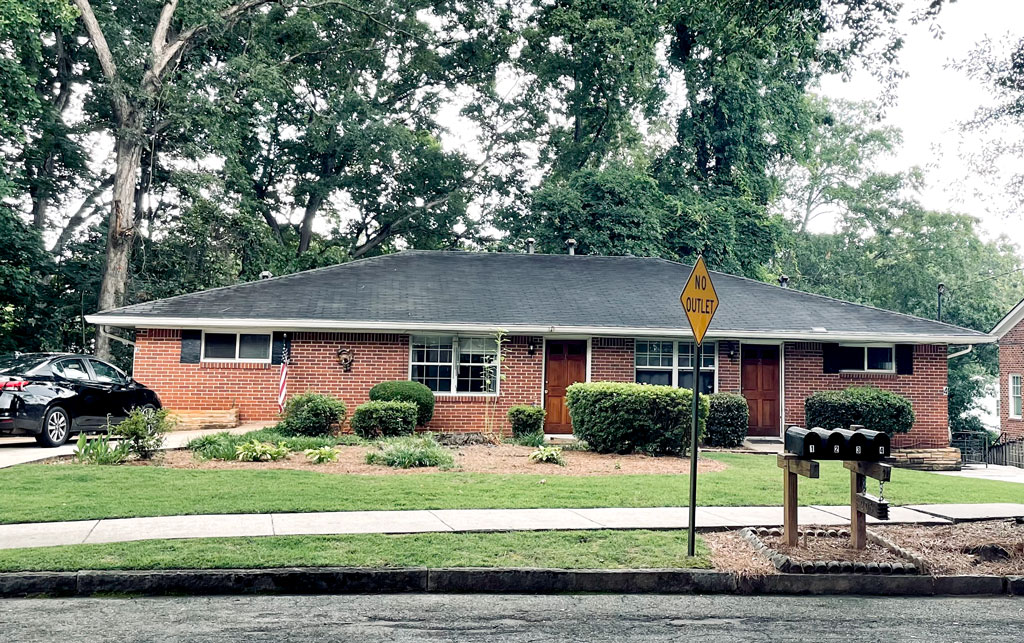Dear Neighbors,
You have heard a lot about Decatur’s current “missing middle” housing crisis. The question for us, as a voluntary association of affordable housing advocates, is future-oriented: “what kind of community do you want Decatur to become?” The Coalition for a Diverse Decatur & DeKalb believes our community should be an inclusive one that welcomes people at all stages of life — recent graduates, professionals, working couples, retirees and growing families.
With a median sale price for a single family home of more than $800,000 in 2022 and rising, some of these groups are — and will continue to be — priced out of the community (source: Intown Market Report, Adams Realty). A central theme in Decatur’s comprehensive strategic plans in 2008, 2010, 2014 , and 2020 was the need for workforce-priced housing. The City’s missing middle zoning policy proposal is a way to put years of long-delayed community input into action.
The missing middle goal is to increase the number of attainable, middle-income homes. The recommendations will increase choice and flexibility for homeowners, too, by allowing existing homes to be subdivided into additional units. This creates downsizing and additional income opportunities for the homeowner, and rental or home ownership possibilities for middle income and workforce earners.
The missing middle proposal contains specific provisions that will create more middle-income homes without jeopardizing existing single-family home values or the quality of life for current homeowners:
- Reinstating duplexes, triplexes and quadruplexes into our code is reasonable. Until the 1980s, these types of housing were allowed in Decatur. Since then, the city has lost hundreds of 2- to 4-unit homes, while the number of single-family homes with 5 or more bedrooms has increased.
- Having a duplex, triplex or quadruplex next door does not lower your property value. Examples are spread throughout our neighborhoods, including on Drexel Avenue, Sycamore Drive and Garden Lane, with no negative impact on neighboring properties. The DeKalb County tax digest reflects this. Academic research does not support any notion that allowing 2- to 4-unit properties will have a negative impact on nearby home values.
- Decatur has not seen significant impacts from investor home purchases. Data shows that large investors typically purchase single family homes at a price point lower than is found in Decatur. Missing middle housing types are more likely to be developed by nonprofit or small-scale developers and are typically not considered viable development projects by large-scale developers.
- Our schools are not overburdened. There has been a 3.7 percent decrease in student enrollment, with a current enrollment of 5,484 from a previous high of 5,695 in 2019. For 2022, there is a decline at the lower elementary, upper elementary and middle school levels. (Source: Enrollment Update October Count 2022, City Schools of Decatur). Missing middle housing is a way to expand housing choice for individuals and families, and to ensure our teachers have more options to live close to work.
- The existing accessory dwelling unit policy (since 2015) does not meet the challenge. Lenders do not want to offer mortgages to build them. That’s just one of the reasons we’ve seen so few of these added to our city.
- Missing middle policy is climate policy. Creating more housing in areas of existing infrastructure is one of the most important ways to curb greenhouse gas emissions and suburban sprawl, according to a 2018 report by the United Nations Environment Programme.
- On-street parking can be an important way to slow traffic and increase safety. Studies show on-street parking is a way to add a buffer between cars and pedestrians, shorten the distance to cross the street, and effectively narrow streets causing drivers to slow down. On-street parking is considered by urban planners to be a smart use of space. (Source: https://link.springer.com/article/10.1007/s40890-017-0040-2).
- This change in policy will not bring about rapid change. The missing middle proposal will allow for another tool to help address the fact that most small, older single-family homes are redeveloped into large and expensive homes, worsening the late-stage gentrification that, if unchecked, will make Decatur a place accessible only to the most affluent households — like the Morningside neighborhood.
The vast majority (70 percent) of Decatur’s land is zoned for single-family only. Economic diversity in our city’s population is only possible through increased housing diversity. The proposal would expand compatible options in how homebuilders and affordable housing providers, like the Decatur Land Trust, can meet demand. In turn, it would help diversify the home types and prices available where people want to live and begin to restore the broader income diversity that was once the hallmark of our neighborhoods.
Do you want those people who protect your homes, serve your coffee, and educate your children to be able to be your neighbor? We do, too.
- Join us in supporting Decatur’s Missing Middle zoning proposal by: contacting your city commissioners today
- Signing the Coalition’s letter to city commissioners.
- Attending the January 17 City Commission Meeting.
Sincerely,
The Coalition for a Diverse Decatur & DeKalb

